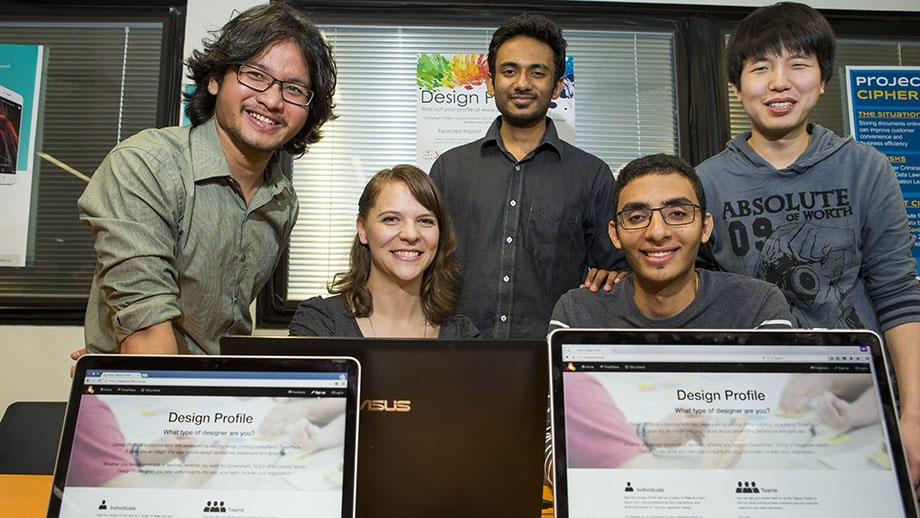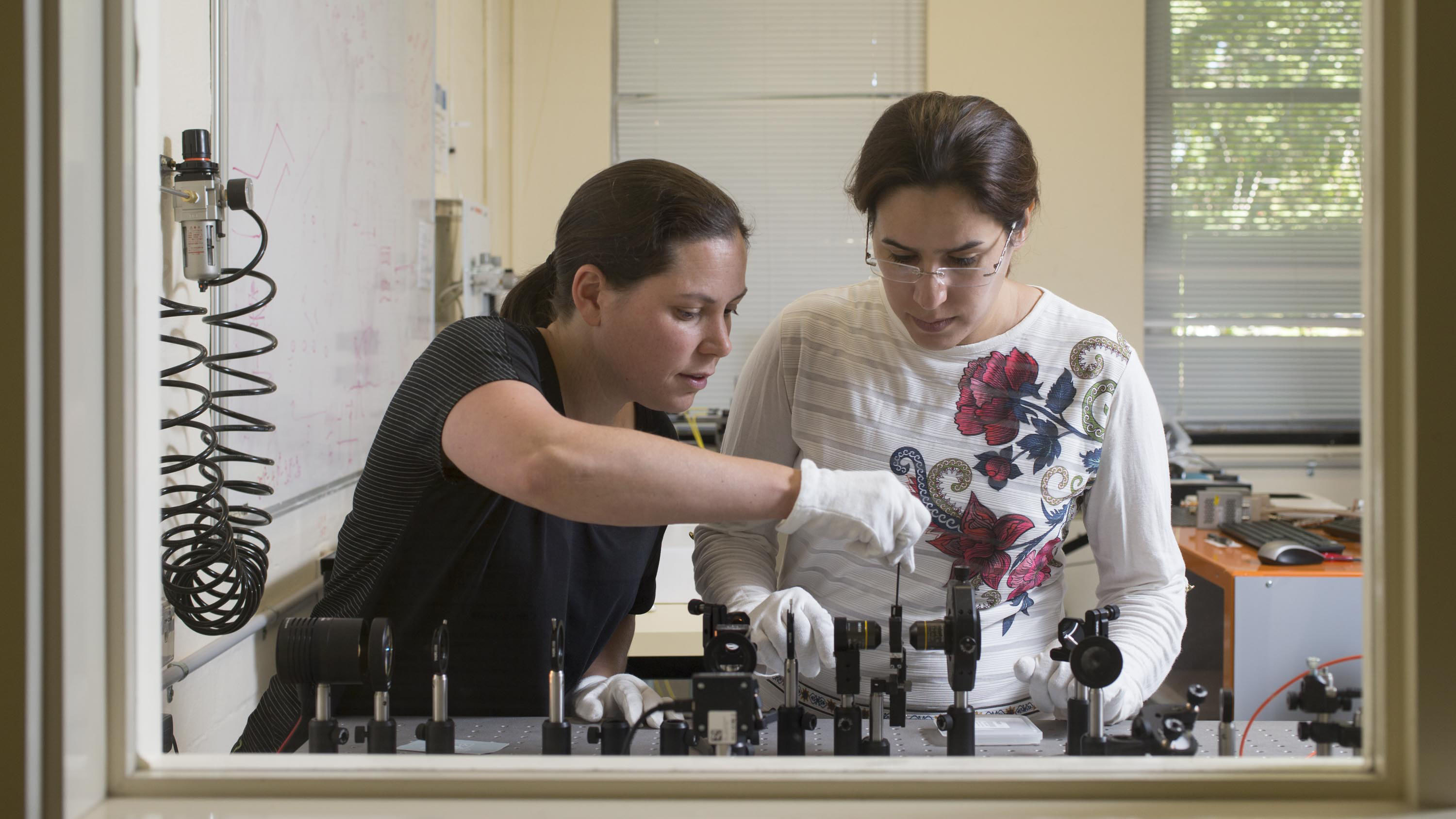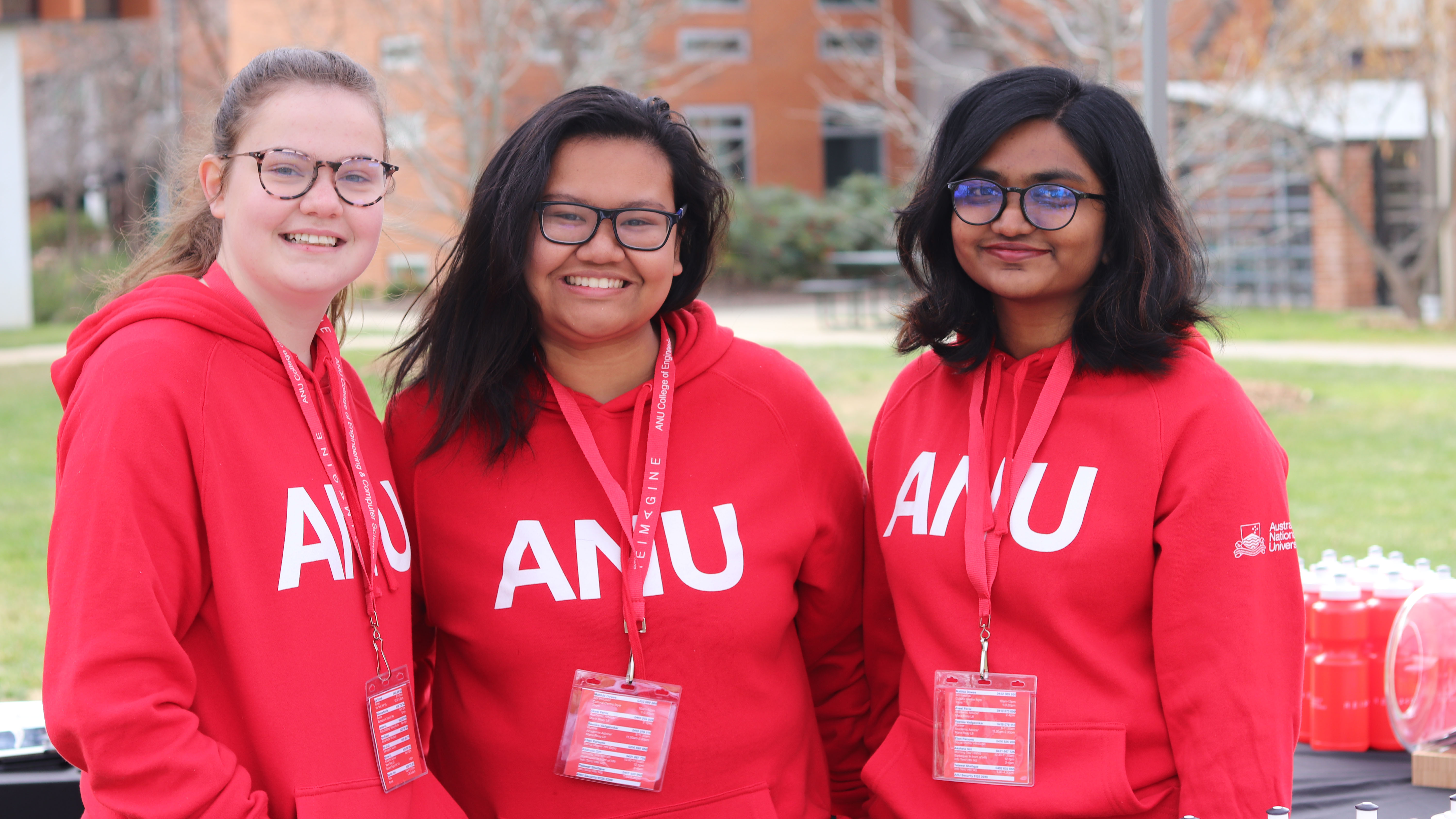Contemplating a career in engineering or tech? ANU will help set you up for success
Get the right skills, make useful connections and learn in a supportive environment with a degree from The Australian National University.

The pandemic has presented challenges for many institutions, but few were arguably more affected than universities. While learning continued across the internet and in a limited, hybrid, socially distanced manner, the full university experience of living away from home, face-to-face academic and social interactions, industry networking and the work-hard/play-hard mind-set all but evaporated. The good news is that it’s finally coming back and the Canberra-based College of Engineering & Computer Science (CECS) at The Australian National University – better known as ANU – has some serious plans for the return.
CECS is looking forward to welcoming new and returning students to Canberra, some for the very first time. The College is aware that many people have been stuck interstate and overseas and are eagerly looking forward to experiencing the best of what the nation’s capital has to offer. Canberra’s relaxed lifestyle, affordable living, fantastic campus accommodation all combine to make for a great life-enriching experience that will stay with you forever – something that only campus-based universities can fully provide. Enjoy networking and socialising with peers – all of whom have been in similar, isolated situations – in an environment that marries the best of city living, culture, wide-open natural spaces and even snow-capped mountains. Irrespective of academia, you’ll love it here and will truly grow as a person.

Precision-tailored degrees
The demand for engineering and computer science graduates is growing across all industries, businesses and forms of government. According to the CSIRO (among others), the demand for STEM jobs is continuing to grow 1.5x faster than other occupations, while the National Skills Commission says they offer more long-term security and resilience than other careers. Internationally, it’s a similar story: the US Bureau of Labor Statistics expects STEM occupations to rise by 8% by the end of the decade compared to a 3.7% average. Meanwhile, India’s National Science Foundation says that up to 80% of all jobs in the next 10 years will require STEM skills. CECS aims to provide up-to-date skills, knowledge and experience for students to compete in these evolving job markets. So, which courses are available?
Bachelor Degrees at CECS come in multiple flavours and revolve around advanced computing, data analytics, engineering and IT. The Bachelor of Advanced Computing offers a strong grounding in computer science and technology but is also interdisciplinary with computing majors drawing in courses such as psychology, biology, maths, art and engineering. There’s also a unique R&D variant for the industrious who’re interested in becoming future ICT leaders. It provides the opportunity to work with some of the world’s leading innovators.
The Bachelor of Applied Data Analytics degree has been developed to meet demands for a workforce that can make informed, high-quality, data-driven decisions – historically an in-demand skill-set across all business, finance, health and national security sectors. The broader, IT degree provides real-world skills that are transferable to all industries.
Engineering degrees at CECS are based on a ‘systems engineering’ framework which means learning how engineering disciplines operate together. They target a fundamental grounding in engineering that ensures you will be able to design, analyse and manage the complex systems of the future. There’s also an R&D variant for high achievers to flourish in cutting-edge technologies such as solar energy, mechatronics and aerospace engineering.

Relevant, real-world experience
Engineering students are encouraged to join the elite Capstone program, which allows students to serve as engineering consulting teams for industry and academic clients: developing conceptual designs, sub-system requirements, risk evaluation and performing trade-off analysis. Notable, recent Capstone projects include a robot archaeologist and a “solar roller” power station on wheels! There’s also the famous Solar Car Racing Club and the interdisciplinary TechLauncher program which brings together students and alumni with industry, government and community groups to help launch ideas, start-ups and discover alternative career paths. Explore how teams have developed processes and used them to deliver useful systems to deliver technological solutions to real-world problems. Also popular is the Minor in Humanitarian Engineering which seeks to make real differences to disadvantaged, marginalised and vulnerable communities by empowering them and improving their quality of life.
All undergraduate degrees provide the groundwork for solving some of the world’s largest problems while developing exceptional, real-world, professional skills in areas of leadership, entrepreneurship and management. They are flexible too, with 750 possible degree permutations in double degree options.
Computing and engineering degrees at CECS are accredited by stalwart industry bodies like the Australian Computer Society and Engineers Australia. These organisations can provide networking abilities, professional connections and employment recommendations to Australian entities, and extend opportunities across the globe.
The plethora of Masters Degrees include extensions of elements within the Bachelor degrees along with specialisations in areas such as Cybernetics, Data Engineering, Mechatronics, Photonics, Renewable Energy and Machine Learning. For those interested in the highest-levels of academic research there are PhD and MPhil programs which offer world-class facilities and supervision in a wide range of areas.

The perfect setup for future success
Whatever you’re looking for in a university, whether it’s an undergraduate adventure, real-world industry experience and qualifications or the opportunity to change the world, CECS at ANU can provide it. Still not convinced? Know that ANU is ranked number one in Australia (and in the top 25 globally) according to the QS World University Rankings. It’s also ranked first in Australia for Graduate Employability according to the 2021 Global University Employability Ranking.
There are numerous support services for all students too. These include the ANU Students’ Association which can help with everything from general support, social issues and even financial and legal aid. There’s a dedicated Postgraduate and Research Student’s association, mentoring opportunities plus many other support networks to help alleviate life’s friction.
Above all, CECS at ANU provides a superb, supportive campus environment where you can meet like-minded peers, attend social and professional events and develop professional and personal relationships that will stay with you forever. CECS is looking forward to welcoming you aboard! Help build the future you want and apply today.
Sign up for breaking news, reviews, opinion, top tech deals, and more.
The ANU College of Engineering and Computer Science is a constituent body of the Australian National University, comprising the School of Computing, School of Engineering, and School of Cybernetics. The College has roughly 150 academic staff, 100 general staff, 200 higher degree research students, and 1,000 undergraduate students.